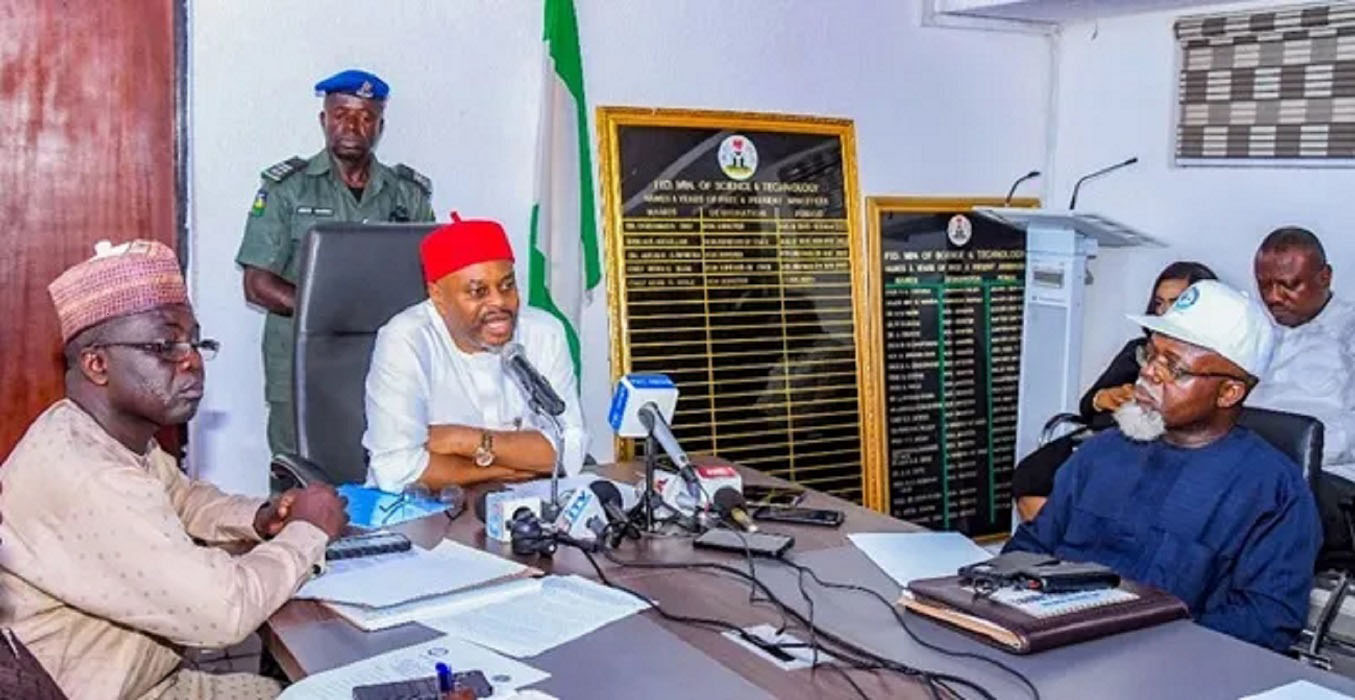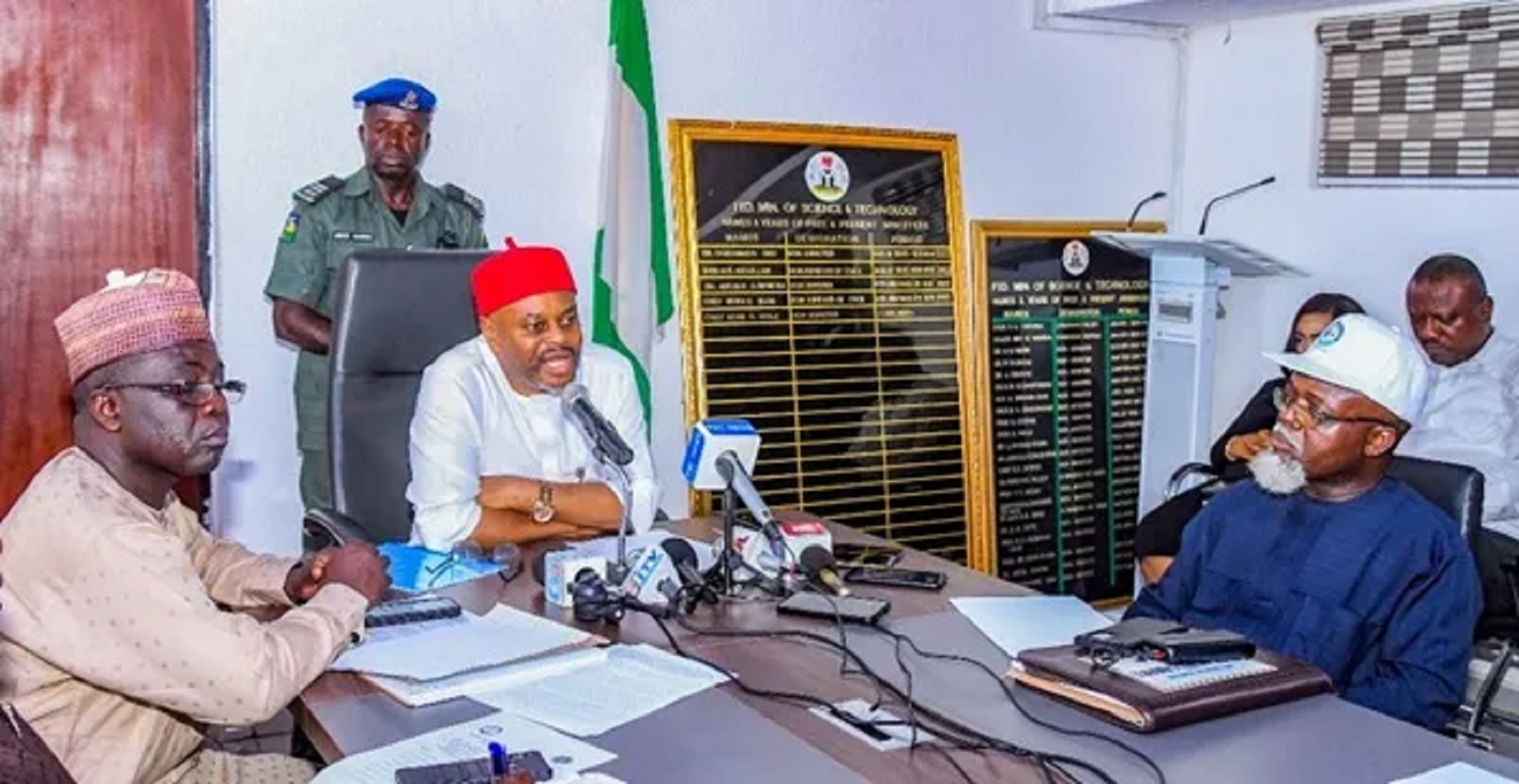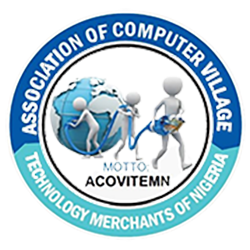
 L-R: The permanent secretary, Federal Ministry of Innovation Science and Technology, Mr. James Sule, Minister of Innovation, Science and Technology, Chief Uche Nnaji and president, Association of Computer Village Technology Merchants of Nigeria, Prince Anthony Nwakeze when the latter led a delegation on a courtesy call on the minister in his office in Abuja.
L-R: The permanent secretary, Federal Ministry of Innovation Science and Technology, Mr. James Sule, Minister of Innovation, Science and Technology, Chief Uche Nnaji and president, Association of Computer Village Technology Merchants of Nigeria, Prince Anthony Nwakeze when the latter led a delegation on a courtesy call on the minister in his office in Abuja.
The Minister of Innovation Science and Technology (IST), Chief Uche Nnaji has reiterated the Federal Government’s commitment to supporting Nigerian youths in acquiring more knowledge and certification in Innovation Computer Technology (ICT).
The minister made this declaration during a meeting with The Association of Computer Village Technology Merchants of Nigeria from Lagos, led by their president, Prince Anthony Nwekeze at the ministry’s headquarters in Abuja.
Nnaji emphasised that the Ministry of IST, in collaboration with Association of Computer Village Technology Merchants of Nigeria (ACOVITEMN), will engage in discussions on how to provide training to Nigerian youths in the field of computers. He expressed optimism that Nigeria could locally manufacture computers with the assistance of technology, innovation and science.
“I am very pleased because I have been part of your growth. I traded in the computer village Ikeja, I traded in Alaba, I traded in Idumota, even in Oladikpo growing up immediately after my youth service, I was a core trader. I feel so happy about what you have achieved because, in our days, it was only important. We had no idea that we could also build and repair computers in Nigeria, taking ourselves to greater heights in terms of technology, innovation, and science. We are going to move Nigeria forward, and I want to assure you that a lot is going to happen,” said Nnaji.
The minister expressed happiness at the initiative taken by ACOVITEMN to train thousands of Nigerian youths in the computer field, emphasising the importance of certification. He acknowledged that the lack of certification poses challenges for talented youths in securing jobs abroad, leading to an annual loss of over ten billion dollars for Nigeria.
Nnaji highlighted a specific example related to the construction of Dangote refinery, where the lack of certification prevented qualified Nigerian welders from being employed. He emphasised the urgency of addressing certification issues and mentioned the collaboration with the Federal Ministry of Labour and Employment to establish hubs in all geopolitical zones for training and certifying artisans.
Prince Anthony Nwekeze, the president of ACOVITEMN, emphasised that Computer Village is the largest ICT market in Africa, with an annual turnover of $2 billion, as reported by the Vanguard newspaper in April 2013. Nwekeze noted that Computer Village has provided direct employment to over five hundred thousand graduates and over three hundred thousand artisans in the last twenty years.
“We provide skills acquisition for over two hundred graduates every year in the area of software development, entrepreneurial knowledge, technical skills and business startup principles. Out of which many were retained as staff, while others will establish their own businesses and, in turn, become employers of labour within a short period,” said Nwekeze.
He outlined some of ACOVITEMN’s visions, including setting up exclusive ICT plazas, hubs, or centres in the six geopolitical locations in Nigeria, implementing public-private partnerships and enacting strategic government policies to ensure partnerships between indigenous ICT firms and foreign counterparts. Additionally, Nwekeze proposed that the Federal Government mandate international ICT firms seeking a space in the Nigerian market to train Nigerian youths in the use of their products.
Nwekeze also mentioned challenges faced by Computer Village, Ikeja, such as difficulties in processing American business visas to attend international events like the Consumer Electronics Show (CES) in Las Vegas, USA and other international ICT professional engagements held every January.
